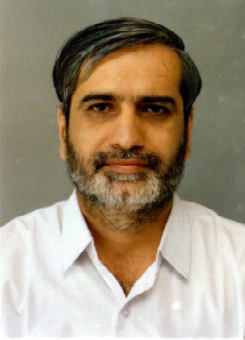Multinational brands and retailers such as Walmart, Gap, Sears, Disney, Target, Abercrombie & Fitch, H&M, JC Penney and others are facing very blistering criticism from social activists, labour trade unions and various NGOs for their negligence of the working conditions – including safety standards – prevailing in apparel factories where their goods are manufactured all over the globe. Most of these brands outsource their products from developing and poor countries where the labour cost is dirt cheap and the working conditions can be termed as subhuman. In spite of their big talks about corporate social responsibility and voluminous mission statements with respect to outsourcing policies and practices, there is hardly any evidence that condition of millions of poor workers in these factories is showing any signs of improvement.During the past few years, hundreds of garment workers in Bangladesh and Pakistan have died due to the fire that destroyed their factories and killed innocent workers for no fault of their’s. These factories were found to be totally neglecting even the basic fire fighting aminities and the working conditions were quite unhygienic. A number of research studies have been conducted to find out the facts behind such poor working condions in hundreds of such factories that are considered to be elitist because they produce apparel for prestigious multinational brands and retailers who pay them much higher than the standard rates being paid by the local customers. These brands are accused of squeezing their suppliers in price. The price pressure on suppliers is never ending. Many researchers believe that this relentless pressure that these companies put on their suppliers to deliver lower and lower prices is the key reason why one finds factories cuffing corners. Factories have no interest in increasing wages or in improving the working condition for them at their production facilities. Even the safety standards are compromised in most of the cases. These researchers are of the opinion that until consumers make safety standards an issue for the big clothing brands, factory fires will continue. At present most of their goods are produced in sweatshop-dominated factories that lack basic amenities like fire safety, clean drinking water and toilets.
Today, Bangladesh is the world’s second largest apparel producer. This is not because it has high levels of productivity, or a strong infrastructure; it got there by being the cheapest place to make clothing due to factors like the industry’s lowest wages (18 cents an hour), ruthless suppression of trade unions, and a breathtaking disregard for worker safety. For these costcutting achievements, the industry in Bangladesh has been handsomely rewared with an ever-rising business from global brands. Local factory owners fear that if they do not continue to offer the lowest possible prices, then they will loose business.
Incidents of fire in garment factories and of ill treatment meted out to workers take place despite claims of buying houses that they have strict code of conduct for their suppliers in respect of labor and safety practices. They claim that they monitor them through aggressive inspections. PVH Corporation, the owner of Calvin Klein and Tommy Hilfger, has signined an agreement with Bangladeshi and international unions and labor rights organizations and made a series of fire safety commitments. Under the agreement, PVH will pay prices to suppliers sufficient to make it possible for them to operate safely. Other retailers like Walmart, Gap and H&M, are likely to follow. Eventually, every big brand should take up the responsibility to ensure safe and decent work place for workers who make their apparel items enabling them to make billions of dollars every year.





